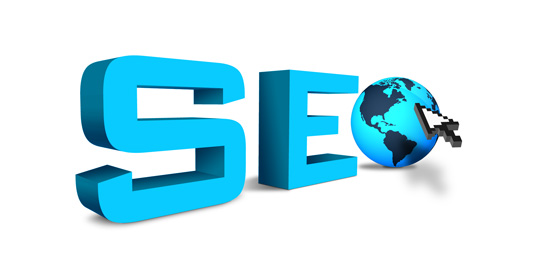How Has The Web Changed Business Positively?

Over the years, the World Wide Web has become the most desirable tool in the work environment, changing the way business is practised. It connects others with ease instantaneously, in ways that include accessibility and cost effectiveness. The web has not only revolutionised business but also homes, education services, libraries, internet cafes, hotels, hospitals, banks, the entertainment industries, the military, recruitment companies, to name but a few and is gradually permeating every other aspect of society. This necessary resource has transformed businesses so they are no longer limited by their location. Nowadays, businesses without websites lack credibility, as this generation expects the professionalism of a company to be validated by their online sites.
A website representing a business, is its form of legitimate advertising. It’s cheaper and more time effective to promote a trade or company via the web. It provides a service, allowing consumers to make payments, order products, gather information and conduct business in the privacy of most environments. The immediacy of how communication works is another aspect of technological advances, courtesy of the internet. Emails have replaced faxing and mailing, as a smarter and more efficient means of delivering messages.

Additionally, conferencing uses the medium of web to communicate globally and avoid travel costs. Companies are now able to propel their businesses using the web. The internet has changed the way businesses make investments. Even the stock market’s system improved, where real time digital portfolios replaced digital stock listings to enable online trading . Also, business news is available world-wide, courtesy of digital media companies that provide data to their users. Therefore, business coverage and economic gain online, now moves faster with its audience. This form of advertising has increased the revenue generated by different sectors. This is evident in statistics for budgets spent via online advertising, where retail ranks first, followed by business and finance.
As this technological advancement has become an integral part of our lives, we can investigate most things at the touch of our fingertips. The pace of how business is conducted has accelerated dramatically, particularly regarding communication and information. Computer storage has remedied filing with drawers. This way, important files are more accessible and can be sent via email to external office locations. Wireless internet and mobile phones running on operating systems, all contribute to how the web has aided the efficiency of business.
Also, companies have changed their infrastructure based on internet progress, by upgrading their databases and introducing more automated systems. Some examples include airline booking and HM Revenue & Customs (HMRC) services including filing of tax returns online. Shared calendar schedules and project management systems / CRM (Customer relationship manager), are just another form of computer networks presence in the work environment. The film industry has also embraced the web, the expansion of promotional methods on the net, online film-making tools and packages (cinematography, sound, editing, script-writing, etc.), movie reference sites, film streaming, file sharing and so on. In music, iTunes downloads now determine record sales figures, compared to more traditional methods utilised in the past. Mobile applications are also becoming widespread for businesses to offer their services, increasing user productivity and conserving time and money.

One of the main ways that technology has influenced business, is in the adoption of outsourcing. This enables the hiring of employees from remote locations or outside of companies. The advantage of this practise is that it is more cost effective. Even the postal service and security firms have begun utilising RFID (radio frequency identification), to keep an inventory of their deliveries and determine specific employees have entrance access. Blackberries and business have become synonymous with each other as these handheld devices are commonplace amongst staff, allowing them to browse the internet alongside emailing and stay connected.
In fact, the web has become the primary medium for most businesses to successfully reach a wider audience at a more inexpensive rate. The internet has not only sped up production but also created more opportunities for smaller businesses to start up. However, all of these online companies are required to comply with security, privacy and copyright laws (including logo or content) and therefore need to protect their interests from other less creative counterparts.
Businesses now also heavily rely on search engines such as Google, listing their adverts or keywords to represent their companies. The implications this has on business communications is paramount in the broadcasting of a brand name and the services provided, as reputation is what attracts more users. The internet plays multiple roles in the benefits of business operations. One of which, is the use of a virtual office either solely in cyberspace, or temporarily hired corporate surroundings at a remote location. The web’s advantages not only impact collaborative channels with other clients but also transform the way we shop via e-commerce (electronic commerce) eg. Amazon. Auction sites like Ebay also afford businesses another mode of trading online.

Additionally, more applications integrating the business world with the internet are continuously being generated. One of which, is the online networking site LinkedIn. This offers people the chance to share ideas and form business partnerships on a professional basis. Social media is just one of the phenomenon’s that has swept through our lives, enhancing communications strategies in leaps and bounds. Furthermore, business has changed with the art of blogging. Companies that publish blogs in addition to their news feeds, not only improve their SEO rankings but also influence and reach their target market. Producing such online articles reinforces to others that you’re knowledgeable of subjects that are related to your profession. Blogging defines having an opinion on relevant topics, understanding your audience, establishing trust and community with them and building a following that eventually takes on a life of its own. Blog feedback is always helpful in guiding and improving the direction of businesses. This written mixture of research and original thought communicates who your company is and what you aim to achieve.

As communication is key in life generally, it is instrumental to business practice and customer relations. The internal correspondence within an organisation, reflects how well it can collaborate with clients externally. Following this, information between businesses is shared online which propagates more expeditiously throughout different networks. The web connects people on a consummate level, allowing for knowledge and ideas to be shared. It is like having an expert on hand, that can reference most subjects or enquiries with instant access to them. For any industry, this means it’s the perfect tool for business trading and marketing ideas. As such, the competitive advantage has changed for corporations, whereby the bureaucracy is no longer the main source for information, subordinate individuals are capable of disseminating data instead.
The internet has bypassed the limitations of our physical position, to have global access via any online connection. The benefits range from shopping with ecommerce retailers to consuming entertainment by streaming videos and online content. The demand for business advertising has increased and websites have become the calling cards for most professions. The evolution of how the web has changed business, has subsequently strengthened the international economy. Even online banking has altered the way, businesses handle their finances. Furthermore, GPS’ (global positioning system) can direct you to companies whereabouts more effectively.

Internet marketing has become the most efficient method for businesses to target specific audiences. Web analytics provide businesses with statistics for them to measure their success. This is tracked by how many visitors are received on their website, what is the most popular attraction on their site, the number of users that read their newsletters, the click through rates for online ads, revenue generated and monitoring your presence on Facebook and Twitter. Also the impact of the web on business has encouraged many business/tech niches to spring up. These various business orientated news reports covering the digital sector, allow their target demographics updates on companies.
The future of the web combined with business looks promising, as science fiction foretells of many possible technological developments. If the internet has already provided businesses with speed, accessibility and amassed information, imagine the prospects of its capabilities at the exponential rate it’s growing. Yet, of all the positive changes achieved for businesses via the web, the most direct service is a website itself. An online site for a business is its digital representation and without it, cannot be trusted as a professional and legitimate source. Therefore, a business that has an exceptional website recognising that it is of tantamount importance, often reaps the rewards of this. A digital design agency specialises in transforming conceptual designs into multimedia realities, in order for businesses to see results. This is where the harmony between the web and business begins.
